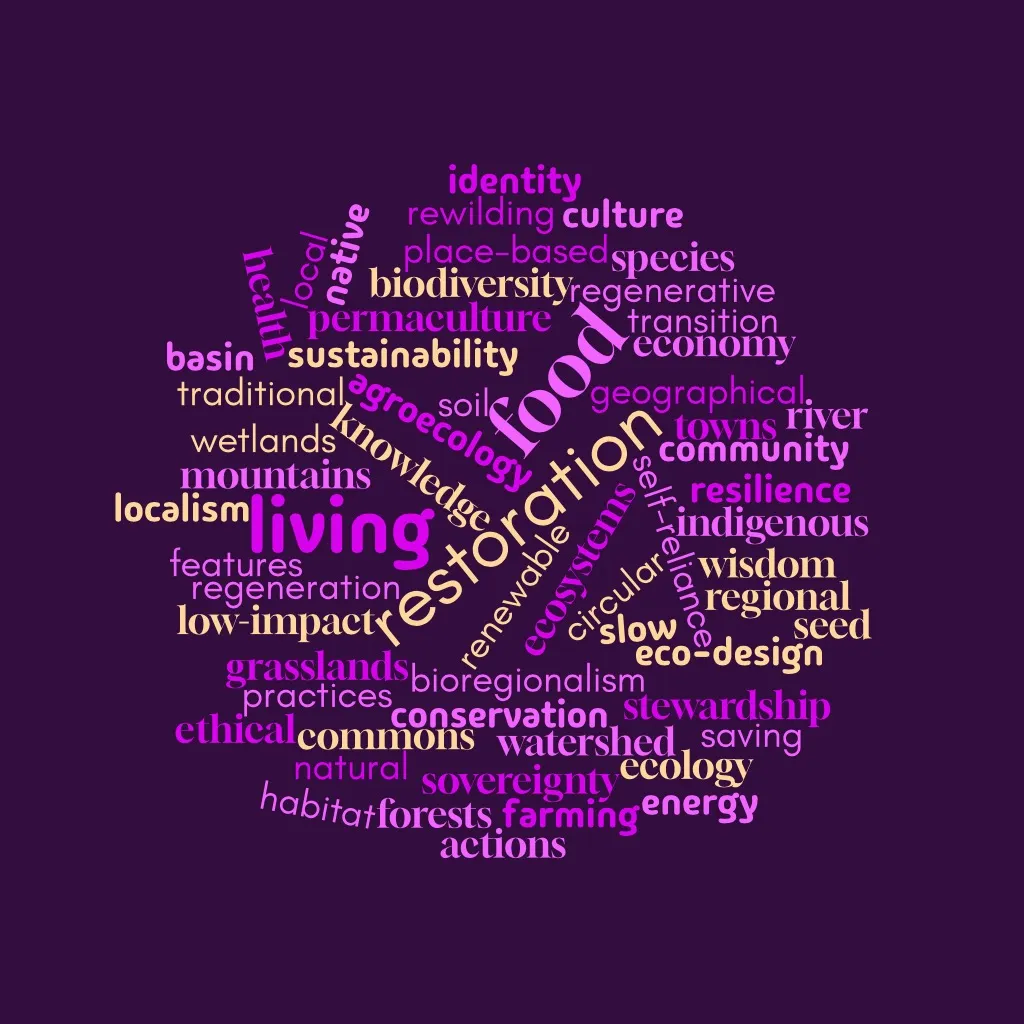 “You never change things by fighting the existing reality. To change something, build a new model that makes the existing model obsolete.”
“You never change things by fighting the existing reality. To change something, build a new model that makes the existing model obsolete.”
— Buckminster Fuller

The world’s dominant economic and political systems are failing — they are failing to sustain ecosystems, nourish communities, and secure a future for coming generations. Yet attempts to reform these systems from within often meet resistance, inefficiency, or outright collapse. Rather than fighting to tweak a broken paradigm, we must embrace a different approach: building a new model that renders the old one irrelevant.
That model is bioregionalism.
Bioregionalism is rooted in place. It recognizes that the solutions to our most pressing challenges — climate change, resource depletion, and social inequity — must emerge from the natural and cultural landscapes we inhabit. Bioregionalism moves away from the globalized, extractive economy and toward self-sustaining, locally adapted systems that regenerate rather than deplete.
Why Bioregionalism Works
A bioregional model respects natural boundaries rather than artificial political lines. Watersheds, forests, and ecosystems define communities, shaping human life and culture in ways that transcend national borders. By aligning our economies, governance, and ways of living with these ecological realities, we foster resilience and abundance, rather than scarcity and collapse.
Economy: Bioregional economies prioritize local food, renewable energy, and regenerative industries, reducing dependence on distant markets and fragile supply chains.
Governance: Decision-making becomes more decentralized and participatory, empowering communities to manage their own resources.
Culture & Identity: Bioregionalism strengthens cultural ties to place, preserving indigenous knowledge and traditional ecological wisdom.
Making the Old Model Obsolete
The industrial, growth-driven paradigm has failed to address systemic crises because it was never designed to. It prioritizes profit over life, extraction over regeneration, and short-term gain over long-term well-being. Rather than struggle to reform what is inherently unsustainable, bioregionalism builds an alternative — one where ecological health and human well-being are the foundation, not an afterthought.
Buckminster Fuller’s insight challenges us to stop fighting the old and start creating the new. The shift is already happening in regenerative agriculture, community-led conservation, local currencies, and ecological governance. The task before us is not to resist change but to accelerate the emergence of the better model — the bioregional model.
